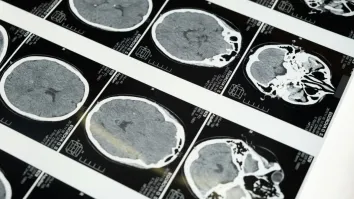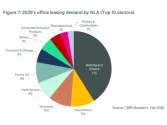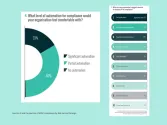
Femto Research Group Co., Ltd develops an easy-to-use Alzheimer’s early diagnosis test kit
The p53DIICBiome© needs only a person’s saliva to find the genome infections in the AD brain.
As populations in many countries start to age, including Thailand, related conditions such as Alzheimer’s Disease (AD) are anticipated to cause social and economic burdens on families and public health systems.
The most common form of dementia, AD is a cognitive impairment that continuously progresses until death comes. However, its exact cause – and therefore prevention and cure – is still unknown.
Femto Research Group Co., Ltd has achieved a breakthrough and released the AD p53DIICBiome©, an innovative and non-invasive test kit that enables the early diagnosis of AD. This test kit is a personal cognitive assessment tool available to customers worldwide to identify pathogenic microbiomes such as bacteria, and fungi frequently found in AD patients' DNA/Genomes.
Customers from any country can easily collect their saliva at home, and send it to Femto Lab©, which will then conduct bacterial and fungal genome identification, and assess the customers’ AD risk.
For this accomplishment, Thailand-based Femto Research Group will receive the Service Innovation of the Year - Thailand from the Healthcare Asia Awards 2023. Slated for presentation on 29 March 2023, the awards programme aims to honour hospitals, clinics and other healthcare providers that have risen and made a remarkable impact on their patients.
AD Research
It has long been hypothesising that AD symptoms start from amyloid β peptide (Aβ) deposition which subsequently triggers the progression of AD. Aβ increases tau protein phosphorylation, then triggering cell death and AD. This hypothesis, however, fails to explain several clinical symptoms of AD and has been questioned by researchers.
Recently, it has been hypothetically proposed that Aβ is made by brain immune cells (microglia) to fight brain infections* and thus protect the brain. However, instead of brain protection, the Aβ synthesised adversely increases tau protein phosphorylation, triggering cell death and AD.
Based on this recent hypothesis, Dr Klaiupsorn Suddhibhaga Pongrapeeporn, CEO Founder and R&D Director of Femto Research Group, has developed the p53DIICBiome© test kit to identify genome infections of brain cells, using dry saliva, for early diagnosis of people with future AD risk.
Referring to an article by Alonso et al. (doi:10.3389/fnagi.2018.00159), the material has provided evidence that fungi and bacteria were co-infections in AD brains. Samples were taken from brain sections and frozen tissue in neuropathological autopsies of patients diagnosed with AD. This article stated that immunohistochemistry and proteomics were used for protein analyses, whereas DNA was analysed by nested PCR and Next-Generation Sequencing (NGS) Analysis.
This article then referenced that antibiotics such as minocycline, doxycycline and rifampin, have beneficial effects during the early stages of AD. Moreover, some antibacterials, including tetracyclines and rifampin, exhibit partial antifungal activity.
Test Case
It has been found that the p53 gene, present in human saliva and which relates to the development of neurodegenerative diseases, is highly expressed in AD.
During testing, Dr Klaiupsorn recalled that “We applied AD p53DIICBiome© to identify genome infections in a 50-year-old, non-AD female case who is at high risk to get late-onset AD,” adding that the test case’s father was diagnosed and died from AD.
Using the test kit, the female test case self-prepared dried saliva and sent it to the Femto Lab©. Analysing the results, it was found that the test case has a risk genotype apo E4/E4, even whilst she was in seemingly good health.
Aside from a person’s family history, fungi and bacterial coinfections in the genome, apo E4/E4 genotype, and advanced ageing are likely to lead to developing late-onset AD in the future. Removal of the observed infections is expected to prevent AD in the future.
Dr Klaiupsorn emphasised that the laboratory process, interpretation, scientific rationales, counselling, and coaching for p53DIICBiome© are personalised to the patient to prevent and manage AD’s progress based on the patient’s infected genome information.
At the moment, Femto is collaborating with its marketing team to develop a strategy to create global awareness of the test kit.
*(bacterial and fungal pathogens can pass through the blood-brain barrier and infect brain cells. Dead infected brain cells then enter the blood circulation and subsequently leak to saliva, in a similar way as circulating tumour cells (CTC) in cancer patients. DNA and RNA extractions are then processed for identification of bacterial and fungal DNA/Genome insertions/integrations in DNA/Genomes of the brain cells.)



















 Advertise
Advertise






